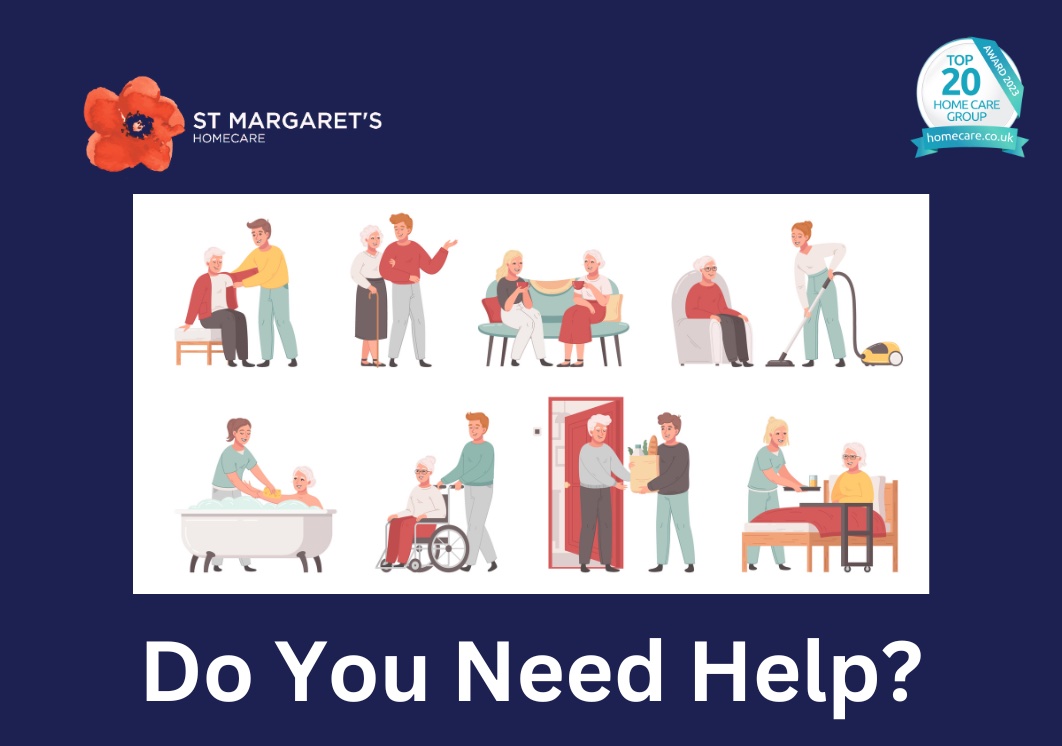
Posted in: Blogs
Age is just a number, some of us may be able to live fully independent lives well into our 80’s, whilst others may need a helping hand a few years earlier. Sometimes it can be hard to tell when you need to ask for extra help, so here’s some significant signs your loved one may need in-home care, and how to broach the subject with them.
If your loved one is struggling with tasks they used to handle easily, such as bathing, dressing, or preparing meals, it could be an indication that they need assistance.
Neglecting personal hygiene, such as not bathing regularly or wearing dirty clothes, may suggest that your loved one is having difficulty maintaining their self-care routine.
Significant changes in weight can be a sign of underlying health issues or challenges with meal planning and preparation.
If your loved one has experienced multiple falls or accidents recently, it may indicate a need for additional support to ensure their safety at home.
Memory problems, difficulty following instructions, or confusion with familiar tasks could be signs of cognitive decline and may require assistance.
If your loved one is becoming increasingly isolated, avoiding social activities, or losing interest in hobbies, it could be a sign that they would benefit from companionship and social interaction provided by home care.
Remember, these signs are not definitive proof that home care is necessary, but they can serve as indicators. It’s important to involve healthcare professionals to assess your loved one’s specific situation and determine the most appropriate course of action.
Approaching the topic of home care with a loved one can be sensitive and challenging. Here are some suggestions on how to have this conversation:
Find a comfortable and private setting where you can have an open and uninterrupted conversation. Make sure both you and your loved one are in a calm state of mind.
Start by expressing your genuine care and concern for their well-being. Use “I” statements to avoid sounding accusatory. For example, say, “I’ve noticed that you’ve been having difficulty with certain tasks lately, and it worries me.”
Share specific instances or observations that have led you to believe that home care assistance could be beneficial. This can help your loved one understand the reasons behind your concern.
Highlight the positive aspects of home care, such as increased safety, personalized support, and the ability to maintain independence at home. Explain how it can enhance their quality of life and provide them with the necessary help they need.
Give your loved one an opportunity to express their thoughts and concerns. Listen attentively and validate their emotions. Acknowledge that it may be a difficult decision for them to accept help.
Empower your loved one by involving them in the decision-making process. Discuss different options together, such as the type of home care services available or the level of assistance needed. Let them have a say in choosing a caregiver or agency.
If your loved one is hesitant, suggest trying home care on a trial basis. Assure them that it’s not a permanent commitment and that they can reassess the situation after a certain period of time.
Encourage your loved one to consult with a healthcare professional or a geriatric care manager who can provide an objective assessment and guidance. Their professional opinion can carry weight and help your loved one understand the necessity of home care.
Remember, every individual and situation is unique, so adapt these suggestions to fit your loved one’s personality and needs. Patience, empathy, and understanding are key when discussing sensitive topics like this.
If you’ve decided home care is the right option for your loved one, the next thing to consider is which level of care they might need. The options range from a few hours a day, to 24hr live-in care.
A quick chat with one of our home care specialists can help you decide on the right level of care to suit you or your loved one. We have a range of affordable care solutions and a passionate and professional care team that are waiting for your call.
